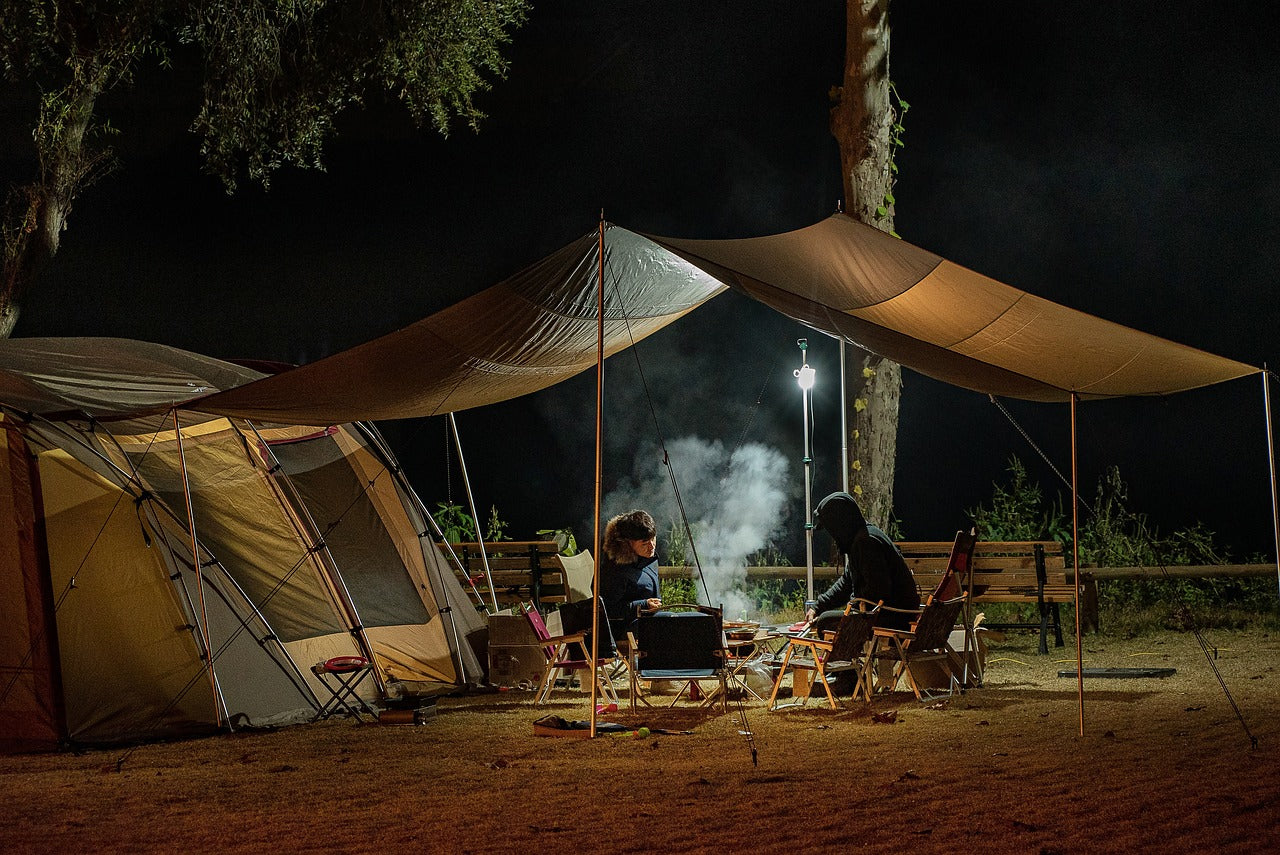Sleep Tight in the Wild: Essential Tips for a Safe and Cozy Night Camping

Camping can be a thrilling way to connect with nature, but ensuring you get a good night's sleep while staying safe in the great outdoors is essential.
Follow these tips to enjoy a restful and secure slumber while camping.
1. Choose the Right Spot
Safety starts with where you set up camp. Look for a flat, dry area away from water sources to avoid unexpected flooding. Avoid pitching your tent near cliffs, steep slopes, or under loose branches that could pose hazards during the night. Camping in designated spots within a campground can offer additional safety measures like marked paths and nearby facilities.
2. Invest in Quality Gear
A good night’s sleep begins with the right equipment. Invest in a high-quality, weather-appropriate sleeping bag and a comfortable sleeping pad to cushion you from the hard ground. Opt for gear suited to the season, especially if you're camping in colder temperatures, to ensure warmth and insulation.
3. Keep Warm
Even summer nights can get chilly in the wilderness. Dress in moisture-wicking layers and wear socks, a beanie, or thermal clothing if needed. If it’s especially cold, use a sleeping bag liner or an emergency blanket to add warmth.
4. Secure Your Tent
Before you hit the hay, make sure your tent is securely staked and zipped up to keep out insects, small animals, and the elements. Check your tent’s seams to ensure they are waterproof, especially if rain is in the forecast.
5. Use a Sleeping Pad or Air Mattress
Sleeping directly on the ground can lead to a rough night of tossing and turning, as the cold ground saps body heat. A sleeping pad or inflatable mattress adds an essential layer of comfort and insulation, helping you sleep soundly while staying warm.
6. Block Out Noise
The sounds of nature can be soothing, but they can also be jarring at times. If you're camping in a noisy area or near wildlife, consider bringing earplugs to block out unfamiliar noises. A white noise app or a battery-powered fan can also create a calming soundscape for sleep.
7. Practice Proper Food Storage
Storing food safely away from your tent is crucial to avoid attracting animals. Use bear-proof containers or hang food from a tree if camping in bear country. Keeping snacks and scented items out of your tent will help prevent nocturnal visits from wildlife.
8. Stay Hydrated, But Not Too Much
Drinking water is important, but try to limit how much you drink just before bed to avoid frequent bathroom trips. If you're camping in the wild, ensure you have easy access to a bathroom or safely designate an outdoor area for this purpose before it gets dark.
9. Bring a Flashlight or Headlamp
Having a reliable light source is crucial for navigating the campsite in the dark, especially if you need to leave your tent during the night. A headlamp or flashlight ensures you can safely find your way around without stumbling or getting lost.
10. Keep a First Aid Kit Close
Accidents can happen, so having a basic first aid kit readily accessible inside your tent is important. This way, you’ll be prepared to handle minor injuries or illnesses should they occur during the night.
11. Stick to a Sleep Routine
Try to maintain a familiar bedtime routine while camping. Wind down with quiet activities like reading or listening to music, and avoid staring at screens to ensure your body adjusts naturally to sleep. Going to bed and waking up at the same time each day can also help regulate your body’s natural sleep rhythms, even in the wilderness.
By following these tips, you can create a safe, comfortable environment for sleeping under the stars, ensuring that your camping trip is both restful and enjoyable.




